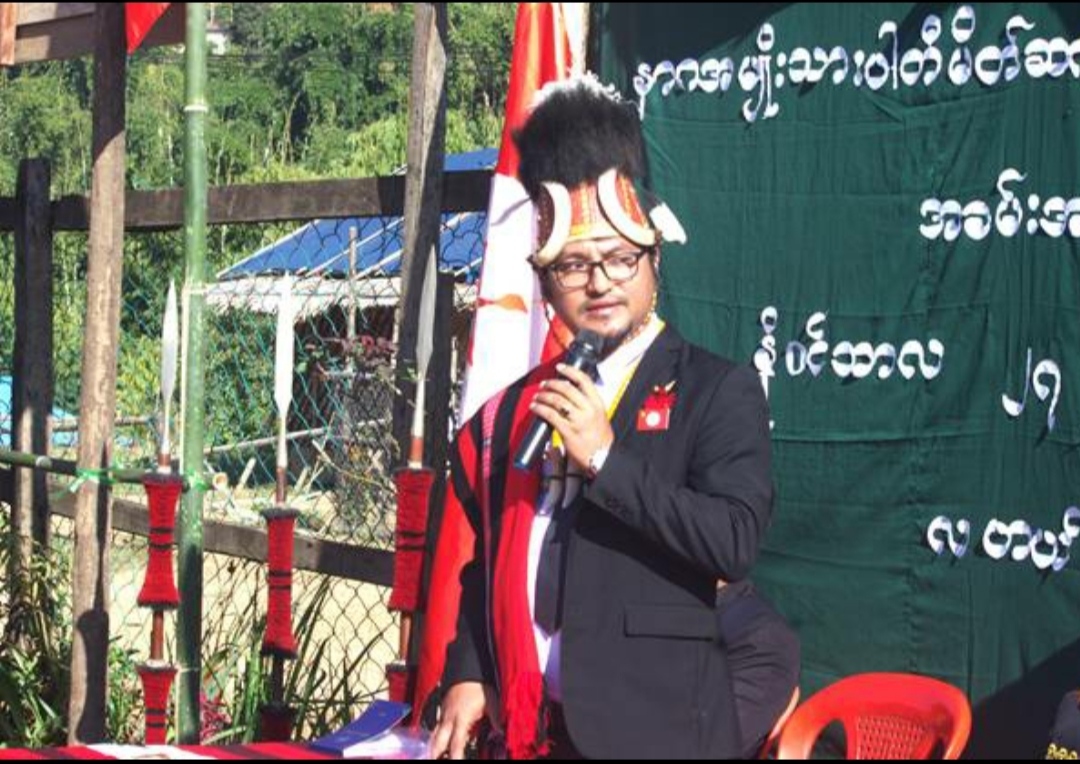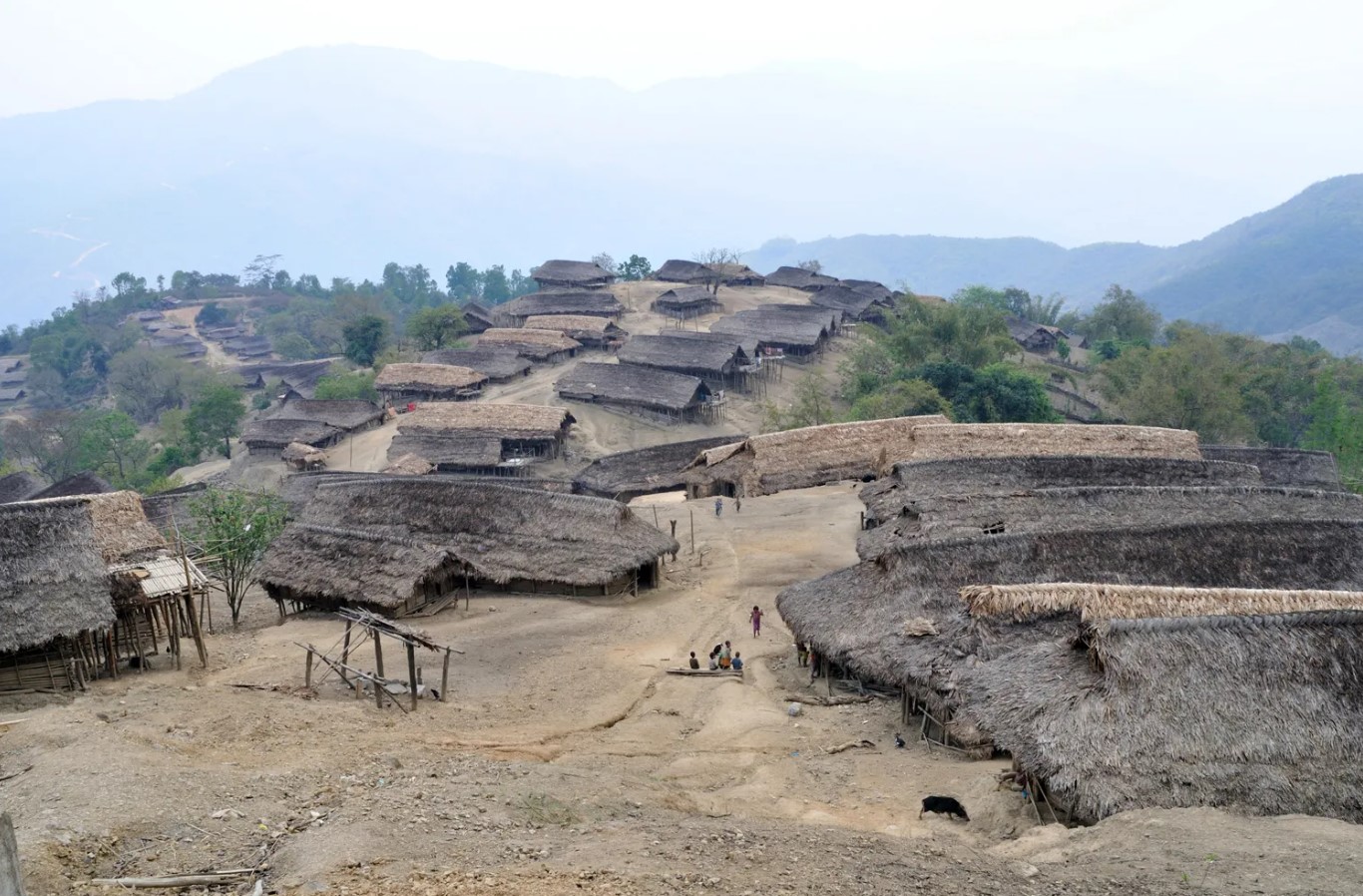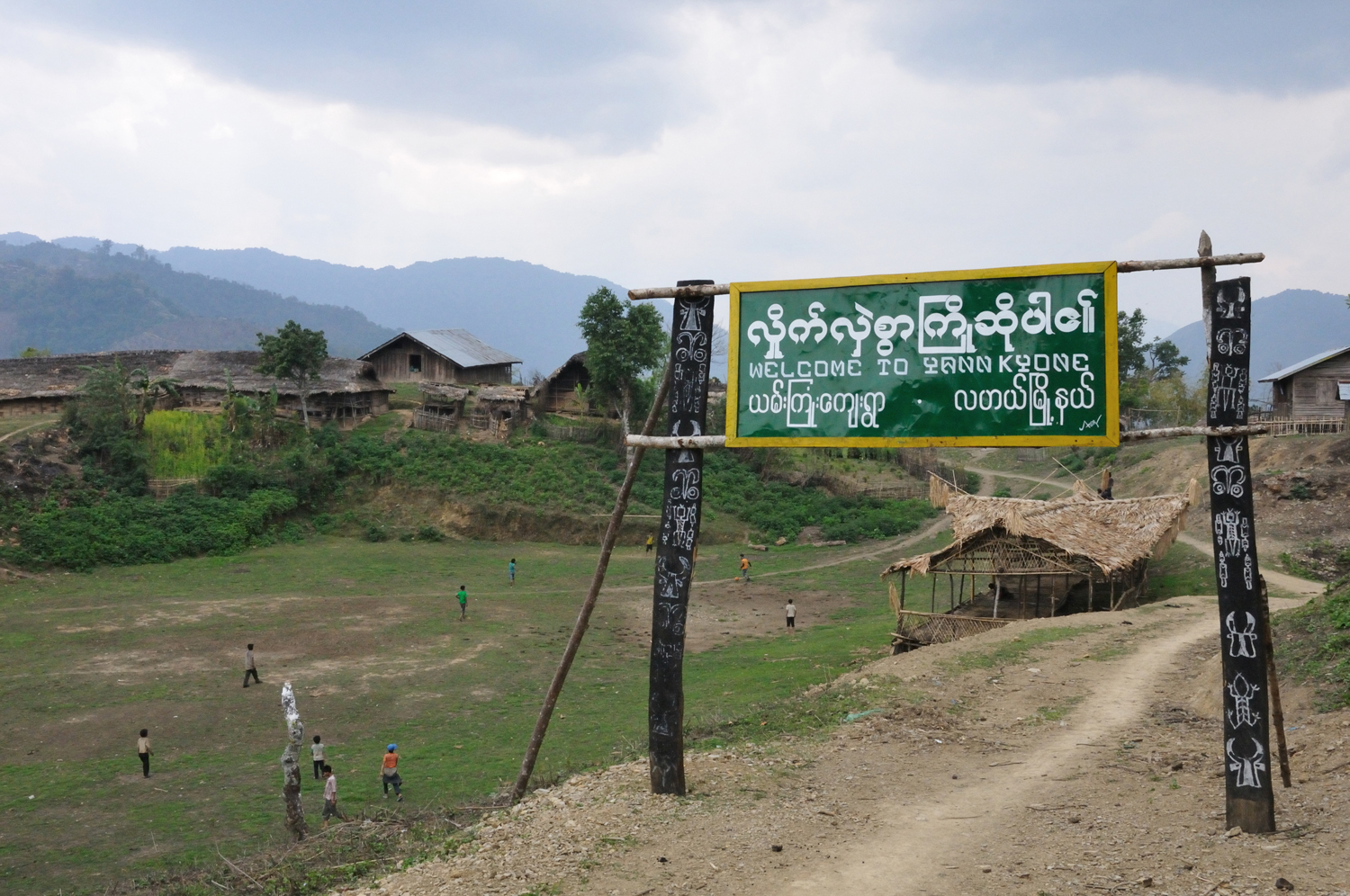CNI Interview
14Dec ember 2024
Among the six self-administered regions in Myanmar, the Naga region is the least developed one.
As the Naga region is a mountainous area, not only there are needs, the people in the region are facing shortage of school teachers, having to pay the tax to armed groups and delay the flow of goods.
Regarding the above-mentioned situations, CNI News interviewed the chairman of the Naga National Party, U Shu Maung.
CNI News: What's the current situation of the Naga region?
U Shu Maung: For the time being, there are no battles. But the people in the region are worried that battles will resume. The rest are operating normally.

While seeing the chairman of the Naga National Party, U Shu Maung
CNI News: What's the current political situation of the Naga region?
U Shu Maung: The politics has been dead kind of because battles are breaking out across the country. But as the election will be held in the near future, the people in the region are interested in the election with the hope that we can get to a good path, rather than living in constant anxiety and misery. But it doesn't mean supporting or protesting. They expect that the election might be a better situation.
CNI News: How are they carrying out the matters regarding education?
U Shu Maung: Schools under the Ministry of Education are operating normally. We are facing an insufficient number of teachers as a rule. But it's getting worse in the current political situation.
CNI News: We have heard that Naga armed groups are collecting money. How will it be solved?
U Shu Maung: Any armed group whose name contains ethnic or not is fighting for their belief will collect the money. The people do not dare not to do so. But government departments have the authority to say so as not to do so. But I don't think any department will say so.
If the amount of money collected becomes a burden on the people, political parties or traditional organizations or social associations save the situation by coordination and negotiation.
Territorial instabilities are caused not only by battles but also by social conflicts. The people obviously don't want to pay the tax to any organization. But in a situation where they have to pay as a tax, they understand it.

While seeing the Naga region
CNI News: We have heard that youths are recruited by force in the Naga region. What's the situation about it?
U Shu Maung: We also heard that. But I don't know exactly why they are recruiting for the military service or for another reason or because of crimes.
CNI News: We heard that the border gates in the Naga region have been reopened. What could make the difference?
U Shu Maung: Re-opening the border gates is good news. It's good too that the border gates with China have been reopened. The flow of goods from the mainland is very delayed. Transportation is very difficult on the road or waterways between Homalin and Khamti in the Naga region as well as between Homalin and Monywa. If you order a product, you'll have to wait at least six months to get it.
So, we have to depend on the goods coming from India. After we met and talked with the Indian authorities about it, India re-opened the border gates. We have to thank India.
If there are no security threats or transportation is not very delayed, the flow of goods can be smooth. The transportation is delayed due to the political situation of the mainland. The goods from India can reach our region within a few hours. It will be beneficial in the long run.

While seeing the Naga region
CNI News: In comparison with other regions, the Naga region is facing a lot of difficulties. So, how have the organizations in the Naga region intended to solve the difficulties?
U Shu Maung: The main difficulties here are higher prices of rice, fuel oil and salt. Fuel oil is essential to transportation, travelling and other businesses. Tihe government should intervene because the prices are so high.
Moreover, there are social difficulties such as health problems. For example, if villages come and tell us that they are in trouble due to a disease, we help them after informing officials concerned to receive aid.
Moreover, if a school hasn't been open, why hasn't it been open? We stand by carrying out checks and balances.




